CPHI Barcelona Sustainability Partner Interview – Procaps' improvement through innovation

Procaps, developer of pharmaceutical and nutraceutical solutions, medicines, and hospital supplies that reach more than 50 countries in all five continents, has partnered with CPHI Barcelona to support sustainability initiatives, to be highlighted at the CPHI Worldwide event in Barcelona in October 2023.
In this final interview of the sustainability partner series, Gonzalo Nieto, Manager of ESG Innovation and Sustainability at Procaps, illustrates how Procaps is committed to innovation for a healthier world.
Please could you introduce yourself and your role at Procaps?
I’m Gonzalo Nieto, I have been working on Procaps Group for over 15 years, focusing my job on innovation and organic growth. From my position, I lead the execution of our sustainability strategy, as a key driver for our corporate development. In accordance with that, we defined an approach to sustainability challenges that comprises three fields:
First, foster the innovation skills in our talent to create and execute novel sustainable projects.
Second, managing open innovation projects with business partners, R&D allies, and suppliers.
Third, including ESG criteria in our organic and inorganic growth strategy.
Procaps states that it is committed to protecting and preserving the environment, could you please outline these commitments and targets for sustainability?
Our environmental commitments are closely related to our evolving challenges and opportunities. We constantly adapt to new elements that emerge as we grow our production and presence in different geographies.
Our analysis and assessment combine two simultaneous steps. These are the pillars of the environmental commitments. On one hand, we analyse the environmental impact of our product life cycle. On the other hand, we consider local characteristics of each site to define action plans. Based on that, we are focusing our efforts in mitigating GHG emissions and reducing waste generation.
Regarding GHG emissions, in 2022, we announced our reduction strategy. It comprises three phases. In the two initials we developed our corporate base line and identified mitigation opportunities. In the third one, we will set and communicate out mitigation targets and the timeframe to achieve them. Currently we are looking to finish the last phase in 2024.
Regarding waste generation, we are committed to reducing materials usage, especially plastic, but maintaining products' safety and quality. We address this in three ways. First, focusing our R&D capabilities to develop new oral delivery system technologies and new formulations. We strongly believe that fixed dose combinations have the potential to provide treatments whilst reducing the demand for packaging material. Second, redesigning our new and current product packaging, looking to avoid plastic and increase recyclability. Third, increasing the amount of waste diverted from disposal from our operations by applying circular economy principles.
How are you planning on achieving these goals? What systems have you put in place?
To achieve these ambitious goals, we leverage our comprehensive management system. It includes in a single system the most relevant aspects for product’s quality, environmental management, occupational health and safety, circular economy, and our innovation system. Thus, our environmental projects are supported by our innovation process, and culture of change and adaptation. One of the key processes of the system is calculating and monitoring GHG emissions across all of our manufacturing facilities. This exercise unveiled our main sources of GHG emissions. Right now, we are evaluating different options to mitigate them. These include investment projects aimed at operating with a higher energy efficiency, increasing renewable sources in our energy matrix, and evaluating more eco-friendly refrigerant gases’ technologies.
Similarly, in the field of waste generation, we have designed plans based on the main impacts and opportunities here. We strongly believe that our capabilities to develop novel fixed dose combinations are a cornerstone in our solution offering on the way to reducing packaging material usage. By the end of 2022, we commercialised three products with Unigel®, a Procaps' proprietary technology, avoiding the use and subsequent disposal of more than 27.5 million blister packs due combining different compounds in a single product. Regarding packaging redesign, we reduced 124.6 tonnes of packaging in 2021–2022 through optimisation projects in the Alu-Alu line.
Furthermore, in our plants we are applying circular economy principles. Almost 45% of the generated waste is recycled with suppliers and partners. We found second uses for materials like paper, wood pieces, and blister packs, which are transformed to plastic products.
Procaps advocates for social development as a part of their ESG programme, how are you working towards this?
Social development is embedded in our corporate purpose. It is a pillar in our sustainability strategy as well. We contribute to social development through three ways.
Procaps Groups has a successful track record of over 45 years delivering health solutions in low- and middle-income countries. One of our goals is to promote the access and affordability of differentiated health solutions in Latin America. Annually we launch an average of 140 new products and invest between 4 and 5% of our net revenue in R&D. Our main therapeutic areas are aligned to the most important health unmet needs in the region, including cardiovascular diseases, diabetes, and other chronic diseases.
Besides our effort to promote greater access to medicine, we contribute to improving health in economically-disadvantaged communities. Procaps Foundation counts ten years of social investment in 2023. The Foundation has been operating to guarantee healthy living and to promote healthy habits in the communities. It achieves these aims by promoting and supporting education, entrepreneurship, good nutrition, emotional and physical health, skills development, sexual health, and women’s empowerment. In 2022, over 170,000 people were supported through its programmes, reaching people beyond the company’s influential zones. Thanks to alliances, we developed projects in remote regions, like the Amazon, where we participated in a health campaign benefiting over 3,000 indigenous people. We also offer a valuable opportunity for collaborators to develop their social skills through our Corporate Volunteering programme. Over 3,000 people had taken part by December 2022, promoting activities in Colombia and El Salvador.
Finally, we develop different activities to unleash our talent's potential. Our human capital is a foundational pillar in executing our sustainability strategy. Here, we work on three main topics. First, promoting diversity, inclusion, and equality. Particularly with gender equality, we deploy campaigns, training sessions, and procedures to nurture an environment of equal treatment and opportunities. By the closing of 2022, women represented 52% of the total workforce, and held 42% of R&D positions and 41% of managerial roles. Additionally, the female population represented over 50% of promotions in the company.
Second, aligned to our innovation-driven and entrepreneurial spirit, we promote training and education in our workforce by using diverse strategies to cover our global footprint. In 2022, a Procaps collaborator received, on average, 69 training hours. We complement this education with opportunities and programmes to foster their professional and personal development.
Third, we manage health and safety through our management system. In 2022, we reduced the accident rate and performed different activities to assess risk, and how to mitigate them and perform corrective action when risks do occur.
Our OHS targets and strategy are planned and monitored with the assistance of collaborators. It is collaborative work between the company and the employees’ representatives. It is worth mentioning that we require our contractors, through audits and evaluation criteria in our procurement processes, to comply with these efforts for people well-being and respect for human rights in labour environments.
How are you using technology and biotechnology to progress more sustainably?
We consider innovation as a vehicle to achieve our sustainable targets. If we think from the social perspective, we aim to develop formulations to increase therapeutic effectiveness, safety, and adherence to treatment. But, if we consider the environmental impacts of developing, manufacturing, and distributing health solutions, such as emissions and waste, we might face a trade-off scenario. In this context, the technological development serves to generate solutions for healthier people and a healthier planet.
We continuously evaluate opportunities for technological development from a product life-cycle perspective. It means that from a very early stage, like the product design, we are considering important potential benefits.
As we are specialised on innovative oral delivery technologies, an important portion of our efforts are targeted to fixed-dose combinations. For example, Unigel® is a proprietary technology that enables to create a single product by combining different pharmaceutical forms and compounds with low compatibility. This technology offers a broad range of opportunities to design, develop and manufacture products to enhance treatment adherence and effectiveness, but using less packaging material and demanding less resources and fuels for storage and distribution. In 2023 we launched a double-chamber syringe, with similar benefits in terms of treatment and the environment.
What processes have you put in place across your manufacturing facilities around the world to hit sustainability targets?
Our sustainability commitment covers the three ESG dimensions. We are working across them in all our manufacturing facilities.
On the environmental side, I would like to highlight our efforts to identify and start GHG emissions mitigation strategies. These include energy efficiency initiatives in all the countries we are present in, since energy consumption – both purchased and self-generated – accounted for more than 70% of scope 1 and scope 2 emissions. As we advance in these goals, we are deploying eco-friendly principles to gain efficiency and reduce the impact of our offerings.
Regarding the social aspect, we are driving programmes for diversity and equality, and occupational health and safety for our talent, our people. We are also working for communities. There, I want to highlight our access to medicines actions. Our products reach over 50 countries, having direct presence in 13 countries of Latin America. We provide treatment options for non-communicable diseases in LMICs countries, such as cardiovascular diseases, diabetes and cancer, by introducing novel formulations using our oral delivery system technologies. We estimate a yearly average of more than 600,000 patients benefiting from our cardiovascular, diabetes, and central nervous system solutions.
Regarding governances, we constantly oversee and update our business ethics and transparency programme. Besides the people directly involved in the risk assessments, we are confident that each of our collaborators is a guardian of our ethics, this is part of Procaps DNA. For that reason, we deploy across the manufacturing facilities our code of ethics and compliance training programmes, and the authorised channel for queries and complaints.
Why is it so important that events like CPHI Barcelona highlight sustainability in the industry, and is there more that could be done?
CPHI annually creates a space for powerful connections among companies from different geographies and different supply chain segments in the pharmaceutical industry. This represents a unique opportunity for collaboration, to create beneficial alliances for all the parties involved.
At the same time, global sustainability goals demand collaboration to achieve them. A single company cannot achieve all the goals in the 2030 agenda. Success in sustainability is the result of collective efforts.
CPHI offers several opportunities to connect, to showcase our advances in sustainability, and especially to learn from the experiences of different potential partners.
For example, CPHI could offer a company the opportunity to find an API with enhanced sustainable claims, a CDMO that provides unique technologies to develop products that positively impacts patients and the environment, a partner offering packaging material and equipment to boost eco-design properties, and an ally for an optimal distribution chain, reducing the environmental impact of transport and storage.
It is worth noting that all that I just mentioned represents different ways to generate a positive environmental and social impact while you are enhancing the business. This is another huge differential in talking about sustainability at CPHI rather than speaking about sustainability in other spaces. CPHI contributes to increase the awareness about how sustainability metrics and projects can be embedded in the businesses´ growth strategy.
Any further comments?
Collaboration is crucial, but speed is important too. To achieve sustainability challenges, we need to act right now. Creating alliances for R&D and unique commercial connections enable us to have solid and encouraging results in our companies.
Being involved with an event such as CPHI is valuable for companies as the companies can learn, adapt, and leverage their sustainability results by using novel technologies through collaborative innovation. Accelerating results is the way to unleash the power of collaboration over global sustainability challenges.
To connect and find out more about Procaps' work towards a healthier, more sustainable planet, visit them at Stand 3M40, Contract Manufacturing and Services, you can book a meeting here.
Related News
-
News CPHI Pharma Awards 2023 – Supply Chain Excellence Winners: Catalent Case Management Services
After another year of impressive nominations for the CPHI Pharma Awards our winners were announced at CPHI Barcelona in October. In this series of interviews, we speak to the people and teams behind the award-winning projects, concepts, and technologie... -
News CPHI Pharma Awards 2023 – API Development and Innovation Winners: Snapdragon Chemistry, a Cambrex Company
After another year of impressive nominations for the CPHI Pharma Awards our winners were announced at CPHI Barcelona in October. In this series of interviews, we speak to the teams behind the award-winning projects, concepts, and technologies. -
News Navigating the Future: Challenges and Opportunities in Pharma Innovation and Investment – CPHI Barcelona 2023 Roundtable Report
In this comprehensive downloadable report, hear from a range of experts in finance and investment in the pharma industry on what investment trends will be shaping the future of the industry, in Catalonia, and the wider world. -
News CPHI Barcelona 2023: Partnering for Success – Managing Outsourcing Relationships to Optimise Manufacturing Operations
During CPHI Barcelona 2023, insightful content sessions offered attendees the chance to explore trending topics with expert speakers and panellists. Here, we summarise what the pharma industry and supply chain are talking about the most. -
News CPHI Podcast Series: The 2023 Retro – what have we learnt from the past year in pharma?
Welcome to the last episode of 2023! Digital Editor Lucy Chard is joined by her teammates in a special retrospective episode to close out the year. Guests Vivian Xie, Editor for CPHI Online and Tara Dougal, Content Director for Pharma, discuss their hi... -
News CPHI Pharma Awards 2023 – Accelerating Innovation Winners: React4Life
After another year of impressive nominations for the CPHI Pharma Awards our winners were announced at CPHI Barcelona in October. In this series of interviews, we speak to the teams behind the award-winning projects, concepts, and technologies. -
News CPHI Pharma Awards 2023 – Regulatory & Compliance Winners: Lambda Therapeutic Research Ltd.
After another year of impressive nominations for the CPHI Pharma Awards our winners were announced at CPHI Barcelona in October. In this series of interviews, we speak to the teams behind the award-winning projects, concepts, and technologies. -
News CPHI Barcelona 2023: Loading Potential – Artificial Intelligence for Pharma Manufacturing
During CPHI Barcelona 2023, insightful content sessions offered attendees the chance to explore trending topics with expert speakers and panellists. Here, we summarise what the pharma industry and supply chain are talking about the most.
Position your company at the heart of the global Pharma industry with a CPHI Online membership
-
Your products and solutions visible to thousands of visitors within the largest Pharma marketplace
-
Generate high-quality, engaged leads for your business, all year round
-
Promote your business as the industry’s thought-leader by hosting your reports, brochures and videos within your profile
-
Your company’s profile boosted at all participating CPHI events
-
An easy-to-use platform with a detailed dashboard showing your leads and performance
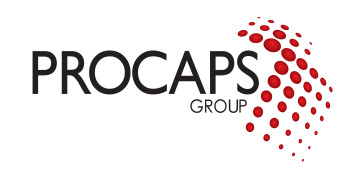
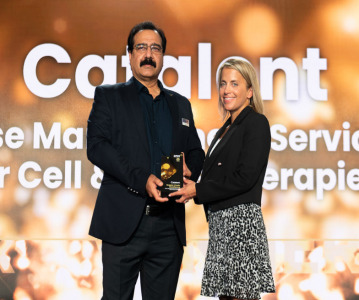
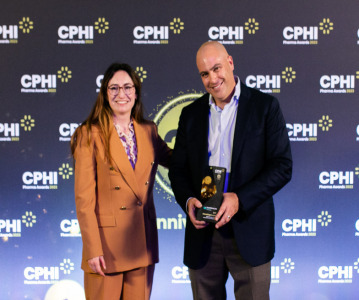
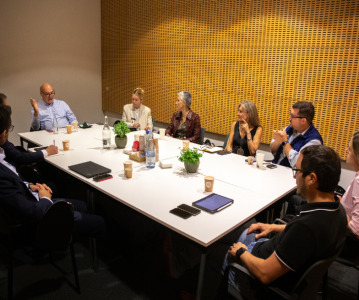
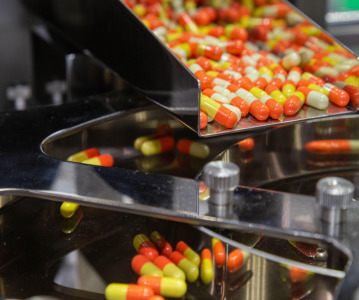
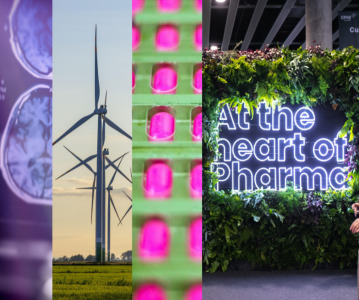
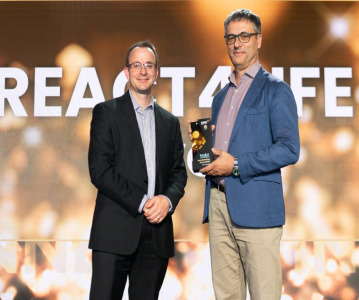

.png)